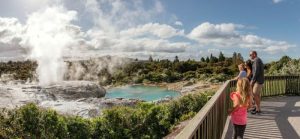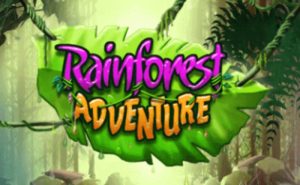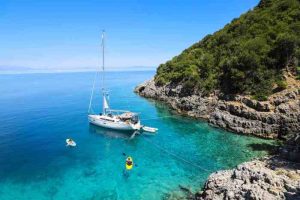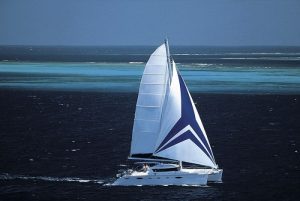
Discover the captivating world of educational tours in Washington, D.C., a city brimming with history, culture, and unparalleled learning opportunities. From exploring iconic monuments to delving into world-class museums, these tours cater to diverse audiences – students, families, and adults alike – offering immersive experiences tailored to various interests and learning styles. Explore the rich tapestry of American history and government, or delve into the vibrant arts and culture scene; the possibilities are as diverse as the city itself.
This exploration will examine the various tour options, popular destinations, engaging activities, and effective marketing strategies employed to make these educational journeys both informative and memorable.
The tours range in duration and cost, providing flexibility for various budgets and time constraints. We will compare leading tour operators, examine effective teaching methodologies, and even suggest potential hands-on activities to enhance the learning experience. Furthermore, we will analyze the marketing landscape and discuss how these tours compare to other travel niches, offering a comprehensive overview of this dynamic sector.
Overview of Educational Tours in Washington DC
Washington, D.C., a city brimming with history, culture, and political significance, offers a wealth of educational tour options catering to diverse interests and age groups. These tours provide engaging and informative experiences, transforming a simple sightseeing trip into a valuable learning opportunity.
Variety of Educational Tours Available in Washington DC
Educational tours in Washington D.C. span a wide range of subjects and styles. History buffs can explore iconic landmarks like the White House, the Capitol Building, and the National Mall, delving into the nation’s past through guided walks and museum visits. For those interested in the arts, tours focusing on the Smithsonian museums, galleries, and performance venues are readily available.
Science enthusiasts can explore the National Air and Space Museum or the National Museum of Natural History, engaging with interactive exhibits and learning about groundbreaking discoveries. Furthermore, specialized tours focusing on specific historical periods, political processes, or artistic movements cater to niche interests. The city’s diverse offerings ensure that there’s a tour to suit every educational need and preference.
Target Audiences for Educational Tours
Washington D.C.’s educational tours attract a diverse clientele. School groups of all ages, from elementary to university level, frequently participate in structured tours designed to complement their curriculum. Families with children also find these tours a valuable way to combine entertainment with learning, fostering a shared appreciation for history and culture. Adult learners, including individuals and groups, participate in tours catering to specific interests, offering opportunities for lifelong learning and personal enrichment.
Finally, many organizations and businesses use these tours as team-building exercises or professional development opportunities.
Typical Duration and Cost Range of Educational Tours
The duration and cost of educational tours in Washington D.C. vary significantly depending on the tour operator, the tour’s scope, and the number of participants. Shorter tours focusing on a single landmark or museum may last a couple of hours and cost around $30-$50 per person. More comprehensive tours, encompassing multiple sites and including transportation, can last an entire day or even multiple days, costing upwards of $100-$200 per person.
Prices can also vary depending on whether the tour is privately booked or part of a larger group. Many operators offer discounts for students, seniors, and groups.
Comparison of Three Educational Tour Operators
The following table compares three different educational tour operators in Washington D.C., highlighting their specializations and price points. These are examples, and prices can fluctuate.
| Tour Operator | Specialization | Price Range (per person) | Typical Tour Duration |
|---|---|---|---|
| DC By Foot | Walking tours focusing on history and architecture | $25 – $45 | 2-3 hours |
| Smithsonian Institution Guided Tours | Museum-specific tours within the Smithsonian complex | $30 – $75 | 1.5-4 hours |
| Capital City Tours | Bus tours covering multiple landmarks and historical sites | $60 – $150 | 4-8 hours |
Popular Educational Tour Destinations in Washington DC
Washington, D.C., offers a wealth of historical sites and museums ideal for educational tours, providing immersive learning experiences for students of all ages. The city’s rich history, from its founding to its role in shaping modern America, is palpable in its architecture, monuments, and collections. Choosing the right destinations is crucial for a successful and impactful educational tour.
Top Five Historical Sites for Educational Tours
These five locations consistently rank among the most popular destinations for educational tours in Washington D.C., offering unique perspectives on pivotal moments and figures in American history.
- The National Mall: The National Mall serves as the heart of Washington D.C., housing many significant monuments and museums. Its educational value lies in the sheer concentration of historical landmarks, allowing for a comprehensive overview of American history, from the Lincoln Memorial, representing the struggles of the Civil War and the legacy of Abraham Lincoln, to the Washington Monument, commemorating the nation’s first president.
The Mall’s open spaces also offer opportunities for reflection and discussion.
- The White House: A guided tour of the White House (reservations required well in advance) offers a glimpse into the executive branch of the U.S. government. Students can learn about the history of the presidency, the role of the executive branch in shaping national policy, and the architectural significance of the building itself. The White House’s history is interwoven with the narratives of numerous presidents and major historical events.
- The United States Capitol Building: A visit to the Capitol Building provides a firsthand look at the legislative branch of the U.S. government. Educational tours often include discussions of the legislative process, the roles of the Senate and the House of Representatives, and the building’s architectural and historical significance. The Capitol’s history reflects the evolution of American democracy and its ongoing challenges.
- The National Archives Museum: This museum houses the original Declaration of Independence, the Constitution, and the Bill of Rights. Its educational value is unparalleled, offering students a direct connection to the foundational documents of the United States. The museum’s exhibits explore the creation and significance of these documents, providing context for their lasting impact on American society.
- The Smithsonian National Museum of American History: This museum showcases the material culture of the United States, offering a wide range of artifacts and exhibits related to American history, from everyday objects to significant technological advancements. The museum’s educational value lies in its ability to illustrate historical narratives through tangible objects, making history more accessible and engaging for students.
Sample Three-Day Educational Tour Itinerary: American History in Washington DC
This itinerary focuses on key aspects of American history, offering a balanced approach to political, social, and cultural developments.
- Day 1: Founding Fathers and the Birth of a Nation: Morning: Visit the National Archives Museum to examine the Declaration of Independence, the Constitution, and the Bill of Rights. Afternoon: Explore the National Mall, focusing on the Washington Monument, the Lincoln Memorial, and the World War II Memorial. Evening: Attend a lecture or presentation on the Founding Fathers at a local university or historical society (optional).
- Day 2: The Civil War and Reconstruction: Morning: Visit the National Museum of American History, focusing on exhibits related to the Civil War and Reconstruction. Afternoon: Explore Ford’s Theatre and the Petersen House, sites connected to the assassination of Abraham Lincoln. Evening: Attend a performance or presentation focusing on the Civil War era (optional).
- Day 3: The Presidency and American Government: Morning: Tour the White House (reservations required well in advance) and the United States Capitol Building. Afternoon: Visit the National Museum of American History, focusing on exhibits related to the presidency and American government. Evening: Reflect on the tour’s key takeaways and discuss future research possibilities.
Three Museums Suitable for Educational Tours
These museums offer diverse perspectives and educational resources, enriching the learning experience for students.
- National Museum of Natural History: Beyond its renowned dinosaur exhibits, the museum offers insightful collections on human origins, cultural diversity, and the natural world. Its educational resources include interactive displays, guided tours tailored for different age groups, and extensive online resources for further learning. The museum’s focus on the interconnectedness of humanity and nature offers a unique perspective on history and its impact.
- National Air and Space Museum: This museum chronicles the history of flight and space exploration, showcasing significant aircraft and spacecraft. Educational programs explore the scientific and technological advancements that have shaped human history, connecting scientific progress to broader social and cultural changes. Interactive exhibits and hands-on activities make learning engaging and memorable.
- National Museum of African American History and Culture: This museum tells the story of African American life, liberty, and pursuit of happiness in the United States. Its exhibits explore the contributions of African Americans to American history and culture, highlighting both triumphs and struggles. The museum’s educational resources include guided tours, workshops, and online resources, providing a comprehensive understanding of a crucial aspect of American history.
Educational Tour Experiences and Activities
Educational tours in Washington, D.C. offer a dynamic blend of historical context, political insight, and interactive learning experiences. These tours move beyond simple sightseeing, providing opportunities for deeper engagement with the city’s rich history and the workings of the U.S. government. Effective pedagogical approaches are key to transforming a visit into a meaningful learning experience.Educational tours in Washington D.C.
utilize a variety of methods to engage learners of all ages and backgrounds. The success of these tours hinges on the effective integration of interactive activities, skilled docents, and a diverse range of teaching methodologies. A well-designed tour balances structured information delivery with opportunities for active participation and reflection.
Interactive Learning Activities
Interactive learning activities are crucial for transforming passive observation into active learning. Examples include scavenger hunts that guide students to discover specific monuments or historical markers, requiring them to observe details and answer questions related to what they see. Another example is the use of role-playing exercises, where students might simulate a Congressional hearing or debate, allowing them to experience the dynamics of the legislative process firsthand.
Finally, many tours incorporate technology, such as augmented reality apps, to overlay historical information onto present-day locations, enriching the learning experience.
The Role of Docents and Guides
Docents and guides play a pivotal role in shaping the learning experience. Their knowledge, enthusiasm, and ability to connect with participants are essential. Effective docents not only impart factual information but also facilitate discussions, answer questions, and adapt their presentation to the interests and understanding of the group. They create a dynamic learning environment by weaving narratives, incorporating anecdotes, and encouraging critical thinking.
A skilled guide can transform a simple tour into an engaging exploration.
Teaching Methods Employed
Educational tours utilize a variety of teaching methods to cater to different learning styles. Lectures provide a structured delivery of information, particularly useful for conveying historical context or complex political processes. Discussions, however, foster active participation and critical thinking by allowing students to share their perspectives and engage with the material in a more interactive way. Hands-on activities, such as simulations or artifact analysis, provide a tactile and engaging approach to learning.
The most effective tours often combine these methods to create a balanced and enriching experience.
Hands-on Activities for a US Government Focused Tour
A well-structured tour focused on the U.S. government can greatly benefit from hands-on activities that reinforce learning. These activities can make abstract concepts more tangible and memorable for participants.
- Simulate a Congressional Hearing: Students can take on roles of senators, witnesses, and staff to debate a current issue, learning about the legislative process firsthand.
- Create a Mock Bill: Participants can collaboratively draft a bill, researching the process and understanding the necessary steps involved in legislation.
- Analyze Primary Source Documents: Examine historical documents, such as presidential speeches or Supreme Court decisions, to analyze their significance and impact.
- Debate Current Policy Issues: Engage in structured debates on current policy issues, considering different perspectives and arguments.
- Design a Public Service Announcement: Students can create a PSA to promote civic engagement or raise awareness about a government service.
Marketing and Promotion of Educational Tours

Successfully marketing educational tours in Washington, D.C. requires a multi-faceted approach that leverages both traditional and digital strategies to reach a diverse audience of students, educators, and families. A strong brand identity and compelling messaging are crucial for standing out in a competitive market.Effective marketing hinges on understanding the target audience’s needs and preferences. This includes tailoring messaging to highlight the unique benefits of each tour, such as aligning with specific curriculum requirements, providing engaging hands-on experiences, or offering opportunities for in-depth exploration of historical or cultural sites.
Furthermore, building strong relationships with key stakeholders like schools, universities, and travel agencies is essential for expanding reach and driving bookings.
Online Platforms and Social Media Marketing
Online platforms and social media are indispensable tools for promoting educational tours. A professional website with high-quality images and videos of tour destinations and activities is crucial. This website should include detailed tour descriptions, itineraries, pricing, and booking options. The site’s user experience (UX) should be seamless and intuitive, allowing visitors to easily find the information they need.
Social media platforms such as Facebook, Instagram, and Twitter can be used to share engaging content, such as behind-the-scenes glimpses of tours, testimonials from past participants, and visually appealing posts showcasing the beauty and historical significance of Washington, D.C. Targeted advertising campaigns on these platforms can reach specific demographic groups, maximizing the effectiveness of marketing efforts. Paid search engine marketing (SEM) can also drive traffic to the website by ensuring the tour company’s website appears prominently in search results for relevant s.
Sample Marketing Campaign: Arts in Washington, D.C.
This campaign focuses on a new educational tour exploring the vibrant arts scene in Washington, D.C. The target audience is high school students and art educators.The campaign’s tagline: “Unlock Your Creative Potential: An Arts Immersion in Washington, D.C.”Marketing materials would showcase iconic art institutions such as the National Gallery of Art, the Hirshhorn Museum and Sculpture Garden, and the Smithsonian American Art Museum.
Images and videos would feature students actively engaged in art-related activities, such as sketching in front of famous monuments or participating in workshops with local artists. Social media posts would include interactive elements, such as polls asking about favorite art styles or quizzes testing knowledge of famous D.C. artists. Partnerships with local art schools and organizations would help expand the campaign’s reach and credibility.
The campaign would utilize targeted advertising on social media platforms frequented by art educators and high school students, ensuring maximum visibility.
Compelling Tour Package Descriptions
Compelling tour descriptions are essential for attracting potential customers. Descriptions should highlight key features and benefits using vivid language and evocative imagery. For example, a description for an arts tour might read:
“Immerse yourself in the vibrant art scene of Washington, D.C.! This enriching educational tour takes you on an unforgettable journey through world-renowned museums, captivating galleries, and inspiring studios. Experience the masterpieces of the National Gallery of Art, explore the modern and contemporary collections of the Hirshhorn, and discover hidden gems in the city’s diverse art neighborhoods. Engage in hands-on workshops led by professional artists, gaining valuable insights into various artistic techniques and styles. This tour is designed to ignite your creativity and deepen your appreciation for the arts.”
Another example, focusing on historical aspects, could be:
“Journey through time on this captivating educational tour of Washington, D.C.’s historical landmarks! From the grandeur of the White House to the inspiring memorials of the National Mall, relive pivotal moments in American history. Explore the fascinating exhibits of the Smithsonian National Museum of American History, and delve into the stories of the nation’s founders at Mount Vernon. Our expert guides will bring history to life, providing engaging narratives and fostering a deeper understanding of the events that shaped the United States. This tour offers an enriching and unforgettable experience for students and educators alike.”
These descriptions focus on benefits, using strong action verbs and descriptive language to create a sense of excitement and anticipation. They also clearly communicate the value proposition of each tour, emphasizing the educational and enriching aspects of the experience.
Comparison with Other Travel Niches
Educational tours in Washington, D.C., offer a distinct experience compared to other travel niches. While all forms of travel aim to provide enjoyment and enrichment, the core focus—learning and intellectual stimulation—sets educational tours apart. This section will explore the key differences and similarities between D.C. educational tours and several other popular travel sectors.
Educational Tours vs. Adventure Sports Travel
Educational tours in Washington, D.C., prioritize intellectual engagement and historical exploration. Participants delve into the city’s rich history, political landscape, and cultural significance through guided tours, museum visits, and lectures. In contrast, adventure sports travel focuses on physical challenges and thrill-seeking activities, such as hiking, white-water rafting, or rock climbing. While both can be enriching experiences, the emphasis on physical exertion and risk-taking differentiates adventure sports from the more contemplative nature of educational tours.
Adventure travel might offer some educational elements about the environment or local culture, but the primary goal remains physical achievement.
Educational Tours vs. Birdwatching Tours
Both educational tours and birdwatching tours share a focus on learning and observation. Birdwatching tours, however, are specifically centered around identifying and observing avian species, often in natural habitats. Educational tours in Washington, D.C., encompass a broader range of subjects, including history, politics, art, and science, although specific tours may incorporate elements of nature. The scale and scope differ significantly; birdwatching is highly specialized, whereas D.C.
educational tours cater to a wider range of interests and learning styles.
Educational Tours vs. Arctic and Polar Expeditions
Arctic and Polar expeditions are characterized by their remote locations, extreme weather conditions, and focus on exploring unique ecosystems. Educational components might be included, such as lectures on glaciology or wildlife biology. However, the primary focus is on experiencing the harsh beauty and unique challenges of these environments. D.C. educational tours, in contrast, are conducted in an urban setting with a focus on historical and cultural learning.
The level of physical endurance required is significantly different, with polar expeditions demanding high levels of fitness and specialized equipment.
Educational Tours Compared to Other Travel Niches
The following table highlights the key distinctions between educational tours in Washington, D.C., and several other travel niches:
| Travel Niche | Primary Focus | Key Differences from D.C. Educational Tours | Similarities |
|---|---|---|---|
| Golf Vacations | Golfing and leisure | Emphasis on athletic skill, relaxation, and luxury; less focus on structured learning. | Potential for social interaction and enjoyment of a specific location. |
| Sailing and Yachting | Nautical experience and leisure | Focus on adventure, skill development (sailing), and relaxation; minimal structured learning. | Potential for exploration and experiencing different locations. |
| Jungle and Rainforest Exploration | Exploration of natural environments | Emphasis on wildlife observation, physical challenges, and immersion in nature; less focus on structured learning about human history or culture. | Potential for educational components regarding ecology and biodiversity. |
| Wellness Cruises | Health, relaxation, and rejuvenation | Emphasis on physical and mental well-being; structured learning may be limited to wellness topics. | Potential for social interaction and enjoyment of travel experiences. |
| Geological Destinations | Study of geological formations | Focus on specific geological features; structured learning is often highly specialized. | Shared interest in learning and exploration, but different subject matter. |
| Music and Performing Arts Travel | Experiencing live performances and cultural events | Focus on artistic expression and entertainment; structured learning may be related to the specific art form. | Potential for cultural enrichment and engagement with a specific subject. |
Concluding Remarks

Educational tours in Washington, D.C., offer a unique blend of historical significance, cultural immersion, and engaging learning experiences. Whether focusing on American history, government, art, or any other area of interest, these tours provide invaluable opportunities for growth and understanding. The city’s wealth of resources, coupled with innovative teaching methods and effective marketing strategies, ensures that these tours continue to attract a diverse range of visitors, fostering a deeper appreciation for the nation’s capital and its rich heritage.
The careful planning and execution of these tours contribute to enriching and memorable journeys for participants of all ages and backgrounds.
General Inquiries
What is the best time of year to take an educational tour in Washington, D.C.?
Spring and fall generally offer pleasant weather and fewer crowds than summer.
Are educational tours suitable for young children?
Many tours cater to families with children, but it’s essential to check the age appropriateness of specific tours before booking.
What should I pack for an educational tour in Washington, D.C.?
Comfortable shoes are a must, along with appropriate clothing for the weather. Consider bringing a reusable water bottle and a small backpack.
How can I find discounts or deals on educational tours?
Check tour operator websites for special offers, consider booking in advance, or look for group discounts.
What accessibility options are available for educational tours?
Many tour operators offer accessibility options; it’s crucial to inquire about wheelchair accessibility, audio guides, or other accommodations when booking.





